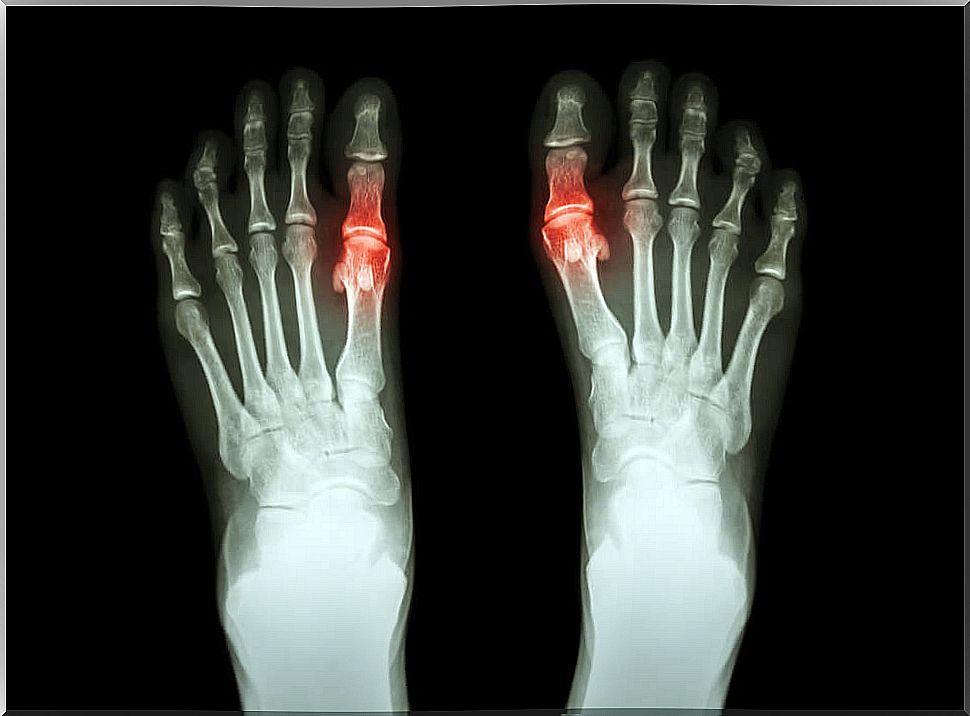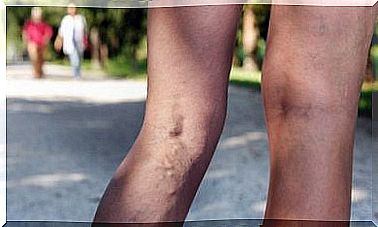Frequently Asked Questions About Arthritis
Arthritis is associated with fitness, lifestyle, occupation and genetics. There are different varieties and forms of presentation, both for men and women.

Although many people misuse it, the term arthritis refers to inflammation of the joints. In fact, although rheumatoid arthritis is the best known, it is not a synonym. In addition, the two terms cannot be used interchangeably.
Indeed, in reality, there are many different types of arthritis. It is estimated that there are nearly 100 varieties. Besides, there are also many diseases associated with this joint inflammation which are accompanied by pain and stiffness.
Since it is a multifactorial and varied disorder, it is difficult to know exactly how many people are affected. Nevertheless, statistics indicate that one in six people suffers from this pathology. That is why, in this article, we try to answer the most common questions about arthritis.
Who is affected by arthritis?
The truth is, arthritis can affect people of any age. As we mentioned before, this term simply refers to the inflammation of the joints. Second, each strain has its own unique set of characteristics and affects certain types of people more often.
However, it seems that certain factors, such as genetics, environment and general lifestyle, are related. For example, it is known that the incidence of almost all types of arthritis increases with age.
Lifestyle and fitness play a major role. Obesity and being overweight can also produce overload in the lower joints of the body, such as the knee. So it can be a trigger for arthritis.
However, this does not mean that athletes are completely spared from this pathology. It is sometimes the opposite. Top athletes are also prone to it due to wear and tear in the joints.
Also, being a man or a woman is closely related to the type of arthritis you have. Almost 60% of people with this disease are women. However, some types, such as gout, are more common in men.

What are the causes of arthritis?
Some types of arthritis have a cause that has been determined. For example, it is known that certain infections can cause the development of the disease. Including infections like tuberculosis, gonorrhea, or Lyme disease.
The same goes for gout, which is caused by excess uric acid settling in the joints. On the other hand, it should be emphasized that the profession exercised also has an influence on the manifestations of this disease. Indeed, the fact of remaining for hours in the same posture, and on a continuous basis, can trigger it over the years.
What are the most characteristic symptoms?
This pathology tends to manifest itself as pain and difficulty moving the affected joint. Sometimes this is accompanied by stiffness in that same area as well as swelling. Arthritis can affect a single joint or several at the same time. It can even be symmetrical or not.
Each type has its peculiarities. And the duration of symptoms is generally variable. For example, rheumatoid arthritis is symmetrical arthritis that affects small joints like those in the fingers of the hand. Gout, on the other hand, often appears as arthritis in a single joint.

What is the treatment for arthritis?
Most arthritis is incurable. Except some types which are related to infections. However, although there are no cures for this condition, there are treatments that can reduce and relieve the symptoms.
Nonsteroidal anti-inflammatory drugs (NSAIDs) are used to reduce inflammation and relieve pain. They are almost always the first therapeutic step. It is important to know that each treatment must be individualized and adapted to the type of arthritis.
Therefore, if you suffer from any of the symptoms and suspect the appearance of this pathology, it is a good idea to consult a doctor. It is essential to investigate the cause and establish a specific treatment program for you. You can also dispel any doubts you may have.









